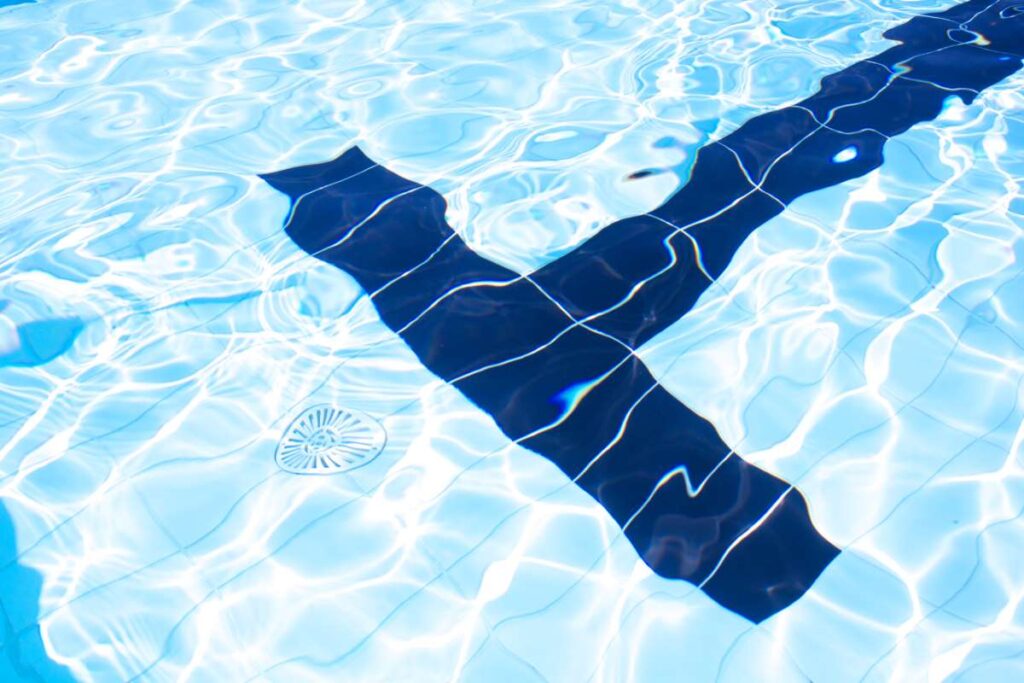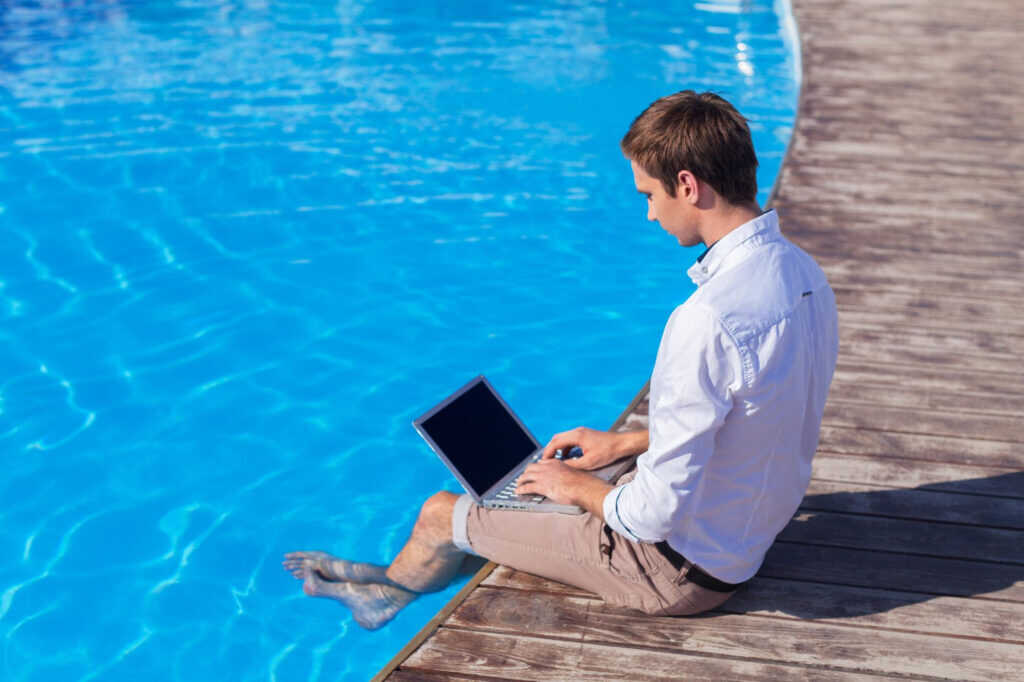Identifying Leaks in Underground Pool Plumbing
Discover effective methods for identifying leaks in underground pool plumbing and learn how to protect your investment with expert tips and insights.
Leaks in underground pool plumbing can lead to significant water loss, increased maintenance costs, and damage to your property. In this blog post, we will delve into how to effectively identify leaks in your pool system, the potential causes of these leaks, and the steps you can take to mitigate these issues. Additionally, we will explore the benefits of maintaining your pool plumbing and offer practical tips for pool owners to ensure their systems remain leak-free. Whether you’re a homeowner or an aspiring pool service professional, this guide will provide you with valuable insights to keep your pool in top condition.
Understanding the Importance of Leak Detection
– Water Conservation: Pools can lose a significant amount of water due to leaks. For example, a leak of just 1/8 inch can waste over 100 gallons of water a day. Identifying and fixing leaks is crucial for conserving water and lowering utility bills.- Pool Health: A leak can lead to imbalances in water chemistry, which can affect the health of your pool and its inhabitants. Maintaining proper chemical levels helps prevent algae growth and other water quality issues.- Cost Management: Ignoring leaks can lead to costly repairs down the line. A small leak can turn into a major issue if left unchecked, leading to expensive plumbing repairs, increased water bills, and potential damage to surrounding areas.- Property Protection: Water leaking from your pool can saturate the ground around it, potentially damaging your landscape or even your home’s foundation. Identifying leaks early can save you from extensive repairs and structural damage.To effectively manage your pool’s plumbing, it is essential to recognize the signs of a leak early on. Regular checks and maintenance can prevent small issues from becoming larger, more complicated problems.
Common Causes of Leaks in Underground Pool Plumbing
Understanding the common culprits behind leaks can help pool owners spot potential problems early. Here are some frequent causes of leaks:- Cracked Pipes: Over time, pipes can crack due to pressure changes, ground shifting, or temperature fluctuations.- Loose Connections: The joints and connections in your plumbing system can become loose, leading to leaks.- Corrosion: Metal pipes can corrode over time, especially in acidic water conditions, leading to leaks.- Tree Roots: Roots from nearby trees can infiltrate pipes, causing cracks and leaks in the plumbing system.- Improper Installation: If the pool plumbing was not installed correctly, it may lead to leaks down the line.Being aware of these potential issues can help pool owners take proactive steps to prevent and address leaks. Regular maintenance and inspections are critical components in preserving your pool’s plumbing integrity.
Signs You May Have a Leak
Spotting the signs of a leak early can make a significant difference in repair costs and pool health. Here are some common indicators that you might have a leak in your underground pool plumbing:- Increased Water Bills: If you notice a sudden spike in your water bill without a clear reason, it may indicate a leak.- Unexplained Water Loss: If you frequently find the water level in your pool dropping faster than usual, it could be due to a leak.- Wet Spots Around the Pool: Puddles of water forming near the pool or in your yard can signal that there is a leak somewhere in the plumbing.- Cracks in the Decking: Cracked or settling pool decking may indicate that water is escaping from the plumbing and affecting the surrounding soil.- Air Bubbles or Reduced Water Flow: If you notice air bubbles in your pool’s return lines or a decrease in water flow, it could be a sign of a plumbing issue.Regular monitoring of your pool’s water level and surrounding area can help you catch these issues early, preventing more costly repairs down the road.
Methods for Detecting Underground Leaks
Once you suspect a leak, it’s crucial to confirm its presence and locate its source. Here are some effective methods for detecting leaks in underground pool plumbing:1. Visual Inspection: Begin with a thorough visual inspection of your pool and its plumbing equipment. Look for cracks, loose fittings, or wet spots that might indicate a leak.2. Bucket Test: Conduct a bucket test by placing a bucket filled with water on the steps of your pool. Mark the water level inside and outside the bucket. If the pool water level drops significantly more than the water in the bucket over 24 hours, you likely have a leak.3. Dye Test: Use food-grade dye to help locate leaks. Add a few drops of dye near suspected areas and observe whether the dye gets drawn into any cracks or holes in the plumbing.4. Pressure Testing: This involves pressurizing the plumbing system and monitoring for pressure loss. If the pressure drops, it indicates a potential leak somewhere in the system.5. Thermal Imaging: Professional leak detection services can use thermal imaging technology to identify temperature differences in the ground, which can indicate leaks.Employing these methods can help you identify leaks quickly and effectively, ensuring prompt repairs and maintenance.
Repairing Underground Pool Plumbing Leaks
Once you’ve identified a leak, the next step is repair. Here are some common repair methods for underground plumbing leaks in pools:- Pipe Replacement: In cases of significant damage or corrosion, replacing the affected sections of piping may be necessary.- Re-sealing Joints: If loose connections are the issue, re-sealing or tightening the joints can often resolve the leak.- Epoxy Injection: For minor cracks, epoxy can be injected into the crack to seal it effectively and prevent further leaks.- Professional Help: If you’re unsure about the repairs or if the leak is extensive, consider hiring a professional pool service like those offered by
Superior Pool Routes. They have the expertise and tools necessary to effectively diagnose and repair plumbing issues.Promptly addressing leaks is crucial to maintaining the integrity and longevity of your pool system. By employing the right repair techniques, you can ensure a long-lasting solution to your plumbing issues.
Best Practices for Preventing Pool Plumbing Leaks
Prevention is always better than cure. Here are some best practices for preventing leaks in your underground pool plumbing:- Regular Maintenance: Schedule regular maintenance checks to inspect plumbing for signs of wear and tear. This can help catch issues before they become serious.- Monitor Water Levels: Keep an eye on your pool’s water levels. Sudden changes can indicate leaks that need attention.- Control Surrounding Landscape: Ensure that trees and plants are planted at a safe distance from your pool to minimize root intrusion into plumbing systems.- Maintain Proper Water Chemistry: Water that is too acidic or too alkaline can corrode pipes. Regularly test and balance your pool water chemistry.- Invest in Quality Materials: When installing or replacing plumbing, use high-quality materials that are designed to withstand the conditions of pool environments.By following these preventive measures, pool owners can significantly reduce the risks of leaks and extend the life of their plumbing systems.
Conclusion
Identifying and addressing leaks in underground pool plumbing is essential for protecting your investment and ensuring the longevity of your pool. By recognizing the signs of leaks early, understanding their common causes, and employing effective detection methods, you can safeguard your pool from significant water loss and costly repairs. Regular maintenance and preventive practices will not only help in avoiding leaks but also enhance your overall pool experience.If you’re looking to expand your knowledge in the pool maintenance industry, consider exploring
pool routes for sale in Florida or other regions. With the right training and support from companies like
Superior Pool Routes, you can build a successful business while helping others maintain their pools effectively. Don’t wait for leaks to become a problem—take action now to ensure your pool remains a source of enjoyment for years to come!



